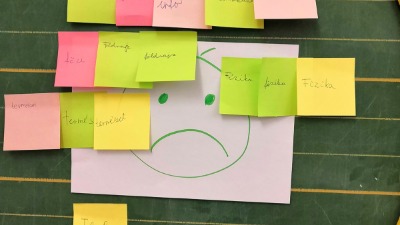Two Hungarian schools, a Serbian school and a Hungarian NGO have been working together for several years. The project focuses on supporting disadvantaged students. As the partner schools struggle with various social problems of the families, it is essential to engage the families of the students, as well. Being part of the Phereclos project, it became possible to focus weekly innovative workshops designed with STEAM in focus for the first time, that is especially necessary for these children. Monthly meetings of the teachers and parents ensure mutual trust. The trainings, the teacher-to-teacher coaching and mentoring, the online and offline discussions with educational experts will ensure the wide perspective of the project.
The programme is jointly implemented by the NGO and teachers at the schools. Teachers are offered continuous professional support during the programme period. The methodology used is based on brain research, and aims at creating a strong foundation for both school success and future life success with the participating children and their parents. The topics are chosen together, based on the overall aim of the project as well as topical issues. The experiential learning programme is designed by a group of experts, but local implementers have a lot of freedom adjusting it, as all three schools work with different groups (only girls versus mixed gender, ages vary between 10 to 14).
In Eastern European countries, Roma communities have been in a vicious circle of disadvantage, leading to school dropout, subsequent unemployment, early pregnancies and other problems. When creating this programme, our aim was manifold: to offer a sounder basis for the future of these children, to offer help to their parents in raising them, as well as building a future for themselves and to support school teachers who are mainly white and middle-class and have difficulties with communication and acceptance.
We activate the same brain areas to remember and to forecast, so if we have no good memories, we can “manufacture” them by simply talking about our plans, creating "future memories".
Judit Horgas / Liget Muhely Alapitvany
horgas@gmail.com
horgas@gmail.com
Eva Somoskoine Veninger/ Salgotarjani Altalanos Iskola Petofi Sandor Tagiskolaja
Maria Kovacs / Kossuth Lajos Gimnazium Kossuth Lajos Altalanos Iskolaja
Aniko Szarvak / Petofi Sandor Altalanos Iskola
Maria Kovacs / Kossuth Lajos Gimnazium Kossuth Lajos Altalanos Iskolaja
Aniko Szarvak / Petofi Sandor Altalanos Iskola

